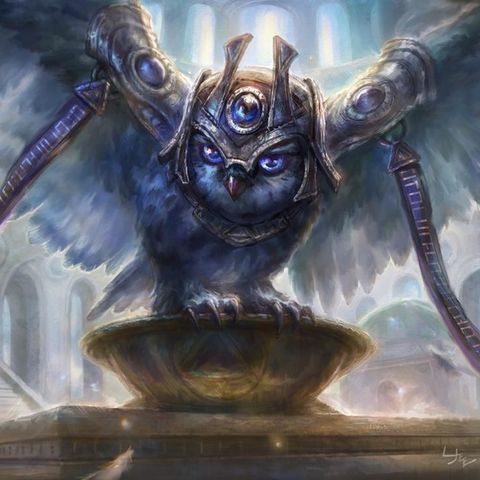Familiars are companions where both the caster and the familiar benefit from the process. Familiars become enhanced version of the creature they start out as. The caster gains a companion with some unique abilities and one boost of some sort based on the familiar they attract.
The bond works both ways. Familiars can decide to leave their caster at any time. This is a very rare situation and only occurs when a caster treats their familiar poorly. When either the familiar or the caster die, it has grievous effects on the other creature in the pact.
Create the Familiar Race
1. Pick a Creature Origin
Select your creature origin from the list below from before you became awakened.
- Amphibiformes: Amphibians
- Aveformes: Birds
- Caniformes : Canines
- Cephalaformes: Cephapods
- Crustaformes: Crabs
- Feliformes: Cats
- Icthyformes: Fishes
- Insectumformes:: Insects and Bugs
- Musteliformes: Small furry carnivores
- Planteformes: Plants
- Rodentaformes: Rodents
- Scimiaformes: Monkeys
- Squamataformes: Reptiles
- Ungulaformes: Hooved animals
- Ursaformes: Bears
Your choice will affect your starting Ability Score Increase, your speed, and other related traits. These are covered in the next section.
See the Create Origin Section for details.
2. Add in the Pseudo racial Ability Scores
All familiars add 1 to their intelligence score
In addition, instead of having a sub-race ability score increase, pick one of the traits below that best exemplifies your familiar.
- Strong: +2 Strength, and proficiency in Strength saves
- Fast: +2 Dexterity, and proficiency in Dexterity saves
- Tough: +2 Constitution, and proficiency in Constitution saves
- Smart: +2 Intelligence, and proficiency in Intelligence saves
- Wise: +2 Wisdom, and proficiency in Wisdom saves
- Influential: +2 Charisma, and proficiency in Charisma saves
3. Determine Ability Scores with Point Buy System
The method described here allows you to build a character with a set of ability scores you choose individually. You have 20 points to spend on your ability scores. The cost of each score is shown on the Ability Score Point Cost table. For example, a score of 14 costs 7 points. Using this method, 16 is the highest ability score you can end up with, before racial increases. You can’t have a score lower than 3. I left 18 on the table just to show the cost of it.
| Score | Cost | Score | Cost |
| 7 | -1 | 13 | 5 |
| 8 | 0 | 14 | 7 |
| 9 | 1 | 15 | 9 |
| 10 | 2 | 16 | 12 |
| 11 | 3 | 17 | 15 |
| 12 | 4 | 18 | 19 |
4. Size
Familiars are small or tiny in the case of Insectumformes. Look at the Effects of Size section for the effects for the familiar.
5. Languages
Familiars can speak the same language as their master.
6. Diverse Features
At 1st level you begin with two features from the Recommended Diverse Features list. In addition, you get to pick a single Diverse Feature at both 5th and 10th level if they every achieve those levels. Most will max out at 4th level. You can also choose a Diverse Feature instead of a feat.
7. Select a Familiar Backgrounds
Familiars can fill many roles for their owners/masters.
List of backgrounds
- Abandoned
- Accomplice
- Badge
- Battle Buddy
- Caregiver
- Laboratory Subject
- Messenger
- Pet
- Professional Assistant
- Scribe
- Stalker
- Toucher
- Watcher
8. Choose a Familiar Classes
Every familiar has a class from a special list of classes below. Currently there are two classes, Export, and Warrior. The Export is a skills rich class, while the Warrior is more of a fighting class. See the Familiar Classes Sections
List of Familiar Classes
Creature Origins
These are the talent or feat like abilities that Familiar have when they are created.
Diverse Features
Familiar backgrounds
List of backgrounds
Backgrounds
Death effects for Familiars
This connection between a familiar and its master are very strong. When they are within a couple of feet and someone reads their aura, a stand will connect them. This is the magics that connect them. When one of the two die, this connection come slinging back at the other and smashes into them. They take damage and could easily die.
Master Dies
When a familiar’s master dies the familiar loses all of its hit points. They drop to zero 0. Familiars do not have wound points, so they drop unconscious. They then start death saves like normal. If they succeed three times before they have three failures, they become stable. Still not a great state for the poor creature. They are often depressed for a long time after this kind of event. Some seek revenge.
Familiar Dies
(Familiar Dies) need to decide which method
Idea 1 (wound points):
You take a d6 wound damage for each level that the familiar has achieved. If your familiar is 4th level you would take 4d6 wound damage.
Idea 2 (hit points):
You lose all of your hit points. You drop to zero hit points. Your next damage would go directly against your wound points.
Leveling your Familiar
There are two ways to add levels to your familiar. Improving your familiar is about sacrifice and connection. You are connected and you give your familiar parts of you to make them stronger and better.
Important note about the level of your familiar. Except at levels 1st – 3rd your familiar must always be at least three levels below your character level. So the first time you can start to add a level to your familiar is when you reach 4th level.
Experience Points
You can decide to sacrifice experience when you gain them, and give them to your familiar instead.
Feats
You can take the feat: Familiar Gains a Level. When you do, they gain just enough experience points to gain a new level.

